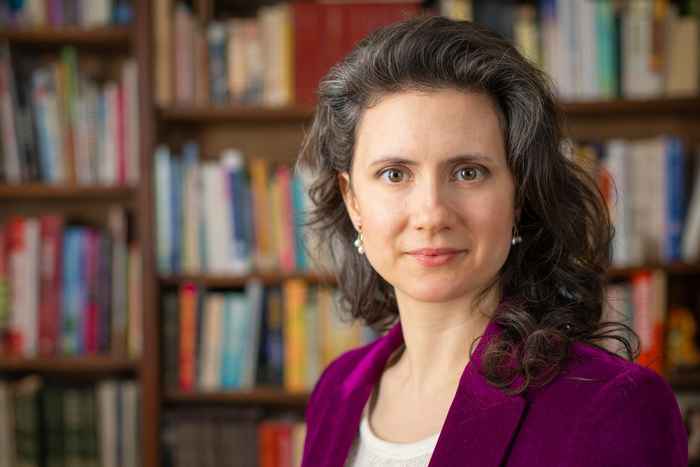5 legal questions on vaccine distribution
Amsterdam Law School
22 February 2021

1 How does the distribution of vaccines work at this moment?
‘Developing and producing Covid-19 vaccines has largely been left to private companies. Although governments have subsidized some of this vaccine R&D, there seems to be few (if any) requirements for how companies are to price and distribute the end product. This means that vaccines are bought and sold on the global market according to international trade law and the forces of supply and demand.
For example, in the face of scarcity, it is possible that buyers placing larger orders or paying higher prices get priority access to vaccine supplies. Under these conditions, vaccine apartheid can take root (where wealthy buyers stand at the front of the distribution line and poorer governments lack sufficient supplies), unless we craft ways to cooperate in solidarity.
This is where our research at the Law Centre for Health and Life comes in. We explore new ways of harnessing the power of law, regulation, and solidarity to create the incentives and shape markets that are needed for equitable medicines development and distribution.’
2 Are there (international) rules for distributing essential goods, such as vaccines?
‘There is no explicit international agreement on how essential goods, such as vaccines, should be distributed worldwide. In that vacuum the prevailing international rules for trade- and bouts of vaccine nationalism- largely influence where limited vaccine supplies go.
It may surprise you to learn that states have already agreed on a set of shared values that could underly an agreement for fair global vaccine distribution. These values are rooted in international human rights treaties that 171 governments have committed to. These common commitments include international cooperation (duty to assist), and disease prevention and control. Pharmaceutical companies also have human rights responsibilities in relation to access to medicines. But human rights principles are generally difficult to enforce in practice without a strong domestic law echoing the same principles.’
We explore new ways of harnessing the power of law, regulation, and solidarity to create the incentives and shape markets that are needed for equitable medicines development and distribution
3 How can equitable global vaccine distribution be promoted globally?
'The key to more equitable vaccine distribution is in solidarity and finding ways to share our knowledge and resources. One way is for buyers to cooperate by pooling their demand to purchase vaccines and fairly allocate the supplies amongst themselves. To different degrees this is what the European Commission (purchasing on behalf of 27 EU countries) and the COVAX initiative (ordering for many countries including 92 low- and middle-income countries) aim to do.
Another way is for suppliers to cooperate by sharing their knowledge so that other manufacturers can produce more vaccines to meet the worldwide demand. The WHO Covid-19 Technology Access Pool (C-TAP) has been set up for this purpose, although no vaccine developer has shared its intellectual property or knowledge with C-TAP yet.
One stand alone example is of AstraZeneca, which has voluntarily made the necessary intellectual property available to scale up its vaccine production for some low- and middle-income countries. This example shows that company collaboration for fairer global distribution is possible. At the same time, innovative legal requirements, regulatory incentives, and greater political will would speed up knowledge sharing among more companies.’
4 There has been a lot of talk about patents as barriers to vaccine distribution. Can’t a government suspend patent protection on medicines?
'Yes, most governments have the legal tools to allow other producers to manufacture and/or sell a patented medicine without the patent holder’s permission. But vaccine patents are not all that is standing in the way of scaling up supplies.
To manufacture more vaccines, producers need access to other types of intellectual property, such as know-how and test data. These factors make it difficult for a producer who does not hold the patent to make more vaccine doses without access to the patent holder’s knowledge.'
5 Once governments have a supply of Covid-19 vaccines, they need to decide who gets priority access. How can vaccines be allocated fairly in a country like the Netherlands?
'These are difficult choices. The Dutch Health Council prioritises people over 60 and the seriously ill, with the aim of reducing mortality and disease due to Covid-19. However, socially vulnerable people who do not fall into these groups also have a high risk of contracting and suffering serious consequences of a Covid-19 infection. Think of people who are socially vulnerable. They may have insecure or informal jobs, be living in poor or crowded housing conditions or have low income or education levels, for example.
Immunisation programmes- like all public health interventions- should aim to reduce such inequalities in society. I’m part of a team of researchers, led by Dr Sharifah Sekalala (Warwick Law School), proposing that vaccine allocation be guided by human rights legal principles, in addition to the ethical and public health principles that are already used.
We develop an ‘intersectional’ allocation scheme that considers both medical and social vulnerabilities (published this month in British Medical Journal Global Health). This way we can understand how different vulnerabilities and disadvantages affect a person’s health, and then allocate vaccines to people who are most affected.'